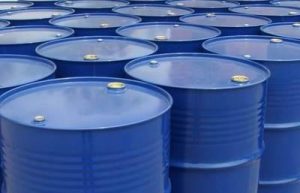Polyurethane reaction inhibitor Y2300
Overview:
Product name: Polyurethane reaction inhibitor Y2300
Alias: polyurethane reaction inhibitor Y2300, polyurethane reaction inhibitor, reaction inhibitor Y2300

Product description: Y2300 can be used to delay the catalytic reaction and improve fluidity while maintaining curing time. It is reactive to isocyanate and will react into a polymer matrix, so no volatile matter is released.
Product Usage:
Y2300 can be used to delay the catalytic reaction and improve fluidity while maintaining curing time. It is reactive to isocyanate and will react into a polymer matrix, so no volatile matter is released.
Used in conjunction with a tertiary amine catalyst in a foam system, it can delay the milky whitening time while maintaining the post-curing time. In the CASE system, the reaction speed of the system can be slowed down and the reaction can be inhibited.
Features:
* Delay the milky white time or inhibit the reaction
* No VOC emission
* Reduce peculiar smell
* Good hydrolytic stability
Suggested dosage:
It is recommended to use 0.5-2.0 pphp in the MDI system and 0.5-1.0 pphp in the TDI system.
Shelf life:
Keep it unopened for two years
Storage and transportation:
Should be sealed and stored in a dry, cool and ventilated warehouse
package:
200KG/barrel Storage: It is recommended to store in a dry and cool area with proper ventilation. After the original packaging, please fasten the packaging cover as soon as possible to prevent the product performance from being mixed with other substances such as water resistance. Store in a cool, dry place, keep the container tightly closed, and avoid contact with oxides. Do not inhale dust and avoid contact with skin and mucous membranes. Smoking, eating and drinking are prohibited in the workplace. After work, take a shower and change clothes. Store contaminated clothes separately and use them after washing. Maintain good hygiene habits. The company recommends that all polyurethane catalysts be stored in a dry and cool place with proper ventilation. All storage containers must be well sealed to avoid contact with water or other influential substances, as this may change the performance of the product in use. The storage temperature is 10°C to 30°C. Lower or higher temperatures are inappropriate and should be avoided as much as possible.



 微信扫一扫打赏
微信扫一扫打赏
